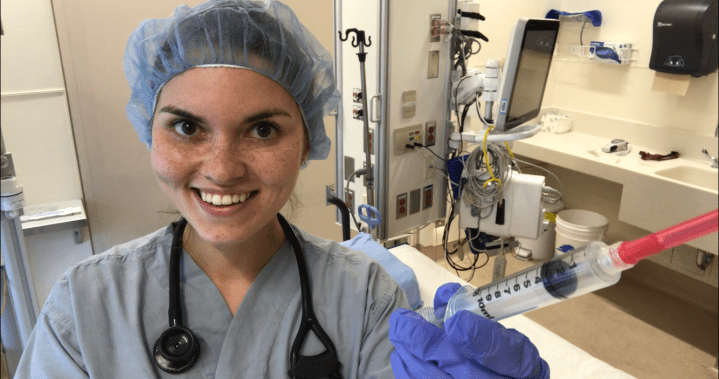YouTube is addressing the issue of health misinformation by verifying the credentials of health-care creators, ensuring that only licensed doctors, nurses, and mental health professionals deliver authoritative content on YouTube Health. The platform has already partnered with organizations such as the World Health Organization and the Centre for Addiction and Mental Health in Canada. This feature is already available in other countries like the United States, Germany, Japan, and Brazil. Timothy Caulfield, a Canada Research Chair in health law and policy, believes that this is a crucial step to combat the rampant health misinformation online, which can have serious consequences. YouTube is a popular platform for health-related content, with creators like Dr. Siobhan Deshauer using their channels to educate and provide transparent information to viewers.
Dr. Siobhan Deshauer, an internal medicine physician in Toronto, started her YouTube channel seven years ago to make health information more approachable and transparent. Her channel has over one million subscribers and more than 40 million views, indicating a demand for reliable health information. Deshauer’s channel is accredited on YouTube Health, as she was part of the testing phase for the new verification process. The goal of YouTube Health is to provide evidence-based, quality health information to Canadians who turn to the platform for health advice. Licensed health professionals who meet the platform’s criteria will receive a distinct label on their videos, increasing visibility and credibility.
Health professionals seeking accreditation on YouTube Health must go through a rigorous verification process, ensuring they are licensed, use evidence-based practices, and have no conflicts of interest. Once verified, their content will be favored by YouTube’s algorithm, appearing prominently in search results. Caulfield acknowledges that platforms like YouTube can inadvertently spread misinformation and sees accredited accounts as a positive step forward in combating this issue. However, he also raises concerns about the challenges associated with verification processes and the potential for misinformation spreaders to circumvent these measures.
YouTube Health is equipped with technology to detect and monitor harmful misinformation on the platform, ensuring that such content is promptly removed to maintain user safety. While the new verification process is a significant step in the fight against health misinformation, Caulfield emphasizes the importance of evaluating the impact of these measures and the perception of health information content by users. He acknowledges the complexity of the issue but believes that proactive steps must be taken to address the pressing problem of misinformation. YouTube’s global head of health, Dr. Garth Graham, emphasizes the platform’s commitment to providing high-quality health information to users, particularly when they are seeking answers to health-related queries online.
As Canadians increasingly turn to platforms like YouTube for health information, the need for trustworthy and reliable sources of content becomes paramount. YouTube’s initiative to verify the credentials of health-care creators and promote licensed professionals is a significant step towards ensuring the accuracy and credibility of health content on the platform. By partnering with reputable health organizations and implementing stringent verification processes, YouTube Health aims to combat the spread of health misinformation and empower users to make informed decisions about their health. The platform’s emphasis on evidence-based practices and transparency underscores its commitment to promoting the well-being of its users and enhancing the quality of health information available online.


